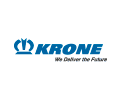At the end of June 2023, there were nearly 33.5 million cars licensed to be on the roads in the UK, and surveys suggest that almost 70% of households have a car, which is up drastically from pre-pandemic times.

With more people learning to drive and becoming car owners, so too have the options available increased for people to fund this purchase; the average cost of a new car can be anywhere from £26,000 to £29,000, while the price of a used car is around £17,000. But there is a car for everyone’s budget regardless of how much you can afford.
If you’re in the market for a new to you car, these are some options to help you pay for your new wheels and get on the road.
Savings
First and foremost, using your savings to buy a new or used car is the easiest way to purchase. You then own the car outright with no monthly repayments to make just for your tax if you pay monthly and your insurance and fuel costs.
For example, you can easily find Ford Pumas on the used car market if you cannot afford a brand new car or any other model you are looking at to find the right car at the right price.
Set your savings goal to match the typical profile of the car you want, either new or used and once you reach it or find a car; you will be happy with using those savings to get your new vehicle.
Personal Loan
A personal loan is a typical option for those who don’t want to be tied into a car finance deal but can’t afford the upfront cost. The better your credit score, the better your interest rates will be. Your lender will likely ask you for a reason for the loan, of which you can stipulate it’s for a car purchase; however, you are free to spend the loan as you wish once it’s cleared in your account.
This way, you don’t have the additional worries about losing your car should you miss any payments or fall behind if your circumstances change. However, like any type of credit, you need to think long and hard about how the repayments will impact you and if you can really afford it.
Credit Card
Again, much like a personal loan, you can fund your car purchase with a credit card if you have the available limit on your card. This will likely limit your choices as to what you can purchase, and some dealerships might not accept credit card payments or add an extra charge on top.
It’s also worth noting that credit cards can often have higher APRs, meaning you will pay back more in interest. If you want to buy our car this way, you should aim to get a 0% interest deal so you can make the repayments before interest is added and clear as much of the balance as possible.
Car Finance
There are a few different types of car finance options advisable to you all with their own pros and cons. If you want to look into this option, you need to know what your terms are for each one from your dealer and whether or not you are happy with them before signing the contract. Your credit score can be negatively and positively affected via car finance, so bear this in mind, too.
0% Interest
A 0% interest car finance deal is a deal that does not apply any interest to your car finance agreement for a set term. It isn’t a deal on its own; it’s an aspect of HP or PCP contracts and, isn’t offered to everyone and isn’t always suitable. It basically means that for the duration of the 0% deal, you don’t pay interest, meaning you can pay off your instalments at a lower cost; however, this usually warrants a higher deposit and an excellent credit score.
Hire Purchase
Hire purchase or HP contracts will at first require you to pay a deposit, either a cash lump sum or trading in an existing vehicle you own. The higher the payments, the lower the monthly instalments. From here, you will pay an agreed monthly instalment for a determined duration to repay the loan agreement. You will then own the car once all of these payments have been made.
Personal Contract Purchase
Similar to HP, a personal contract purchase of PCP, you get all on for the value of the car between its brand-new price and the estimated value at the end of your contract. This can usually mean lower monthly repayments, meaning you aren’t paying for the total cost of the car.
But, with PCP, you have options at the end of your term.
- You can hand the car back to the dealer and pay any charges for wear and tear or damage, etc
- Pay a balloon payment for the resale value of the car and keep it
- Put the resale value towards buying a new car.
Typically, your loan agreement will be shorter, 12 to 24 months, and you can change your car at the end of the term. Your deposit will likely be lower than HP at around 10%, but you don’t own the car at the end of the period; instead, you need to make a lump sum payment or decide what to do next.
Personal Contract Hire
Personal contract hire or PCP is where you pay a dealership a set monthly cost for using the car, including servicing and maintenance. You never own the car outright and are essentially leasing the car. You will find there are monthly driving limits imposed on you, and monthly payments are higher due to the servicing and maintenance costs. You also need around 3 months of repayments as a deposit upfront for 12 to 24-month contracts. But this could be a good compromise if you don’t want the hassle of owning a car outright, and you can stick to the terms.
There are multiple options out there for buying a car; these are only a few of the more common approaches for car purchases you can use.


.gif?rand=3896)








